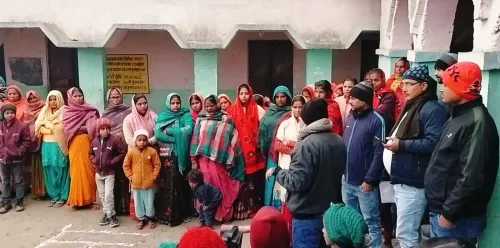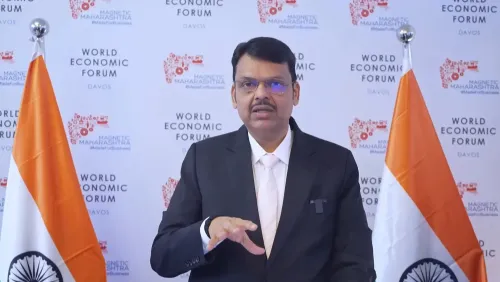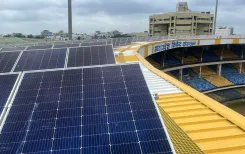Increased MSP Spending by PM Modi's Government Boosts Pulses Production and Exports

Synopsis
Key Takeaways
- Pulses production and exports are on the rise.
- Government spending on MSP has increased significantly.
- Key export destinations include the USA, Turkey, and UAE.
- Self-reliance in pulses is a priority for the NDA government.
- PM-AASHA Scheme allows better pricing for farmers.
New Delhi, March 24 (NationPress) The Narendra Modi-led Central government is concentrating on enhancing the productivity of pulses, cereals, and vegetables to generate more food to improve the nutritional standards of the population while also supporting India's goal to emerge as the food basket of the globe, as stated by a senior official from the Ministry of Agriculture and Farmers Welfare.
As per data gathered by the Ministry of Agriculture, exports of pulses have seen more growth compared to imports, aided by higher Minimum Support Prices (MSP) offered to farmers during the NDA government's regime compared to the previous UPA government.
India's pulse exports were valued at just Rs 1,218 crore in 2014-15, but during the period of April to December 2024-25, this figure skyrocketed to Rs 4,437 crore.
Furthermore, the country exported 5.94 lakh metric tonnes of pulses in 2023-24, which amounted to Rs 5,397.86 crore. The principal export markets include the United States, Turkey, and the United Arab Emirates.
The NDA administration is dedicated to achieving self-sufficiency in pulses cultivation while further reducing the import expenditure, the official noted.
The procurement of foodgrains has risen from 761.40 lakh metric tonnes in 2014-15 to 1062.69 lakh metric tonnes in 2022-23, benefiting over 1.6 crore farmers. The expenditure incurred (at MSP values) on foodgrain procurement increased from Rs 1.06 lakh crores to Rs 2.28 lakh crores during the same timeframe.
Meanwhile, the procurement of pulses at the MSP by the Centre is progressing robustly with the continuation of the integrated Pradhan Mantri Annadata Aay Sanrakshan Abhiyan (PM-AASHA) scheme through the 15th Finance Commission cycle up to 2025-26, aimed at assisting farmers in obtaining better prices for their crops.
Procurement has already commenced in Andhra Pradesh, Karnataka, Maharashtra, and Telangana, where a total of 0.15 lakh metric tonnes of tur (arhar) have been procured until February 15, benefiting 12,006 farmers. The procurement of tur in other states will also begin shortly. The Centre is committed to purchasing 100% of tur produced by farmers through central nodal agencies, namely NAFED and NCCF, as per an official statement.
To encourage farmers contributing to the increase in domestic pulses production and to lessen dependence on imports, the government has permitted the procurement of tur, urad, and masur under the PSS, equivalent to 100% of the state's production for the procurement year 2024-25.
Additionally, the government announced in the Budget 2025 that procurement of tur (arhar), urad, and masur up to 100% of the state's production will continue for an additional four years via Central Nodal Agencies to achieve self-sufficiency in pulses in the country.
Union Minister for Agriculture and Farmers’ Welfare Shivraj Singh Chouhan has sanctioned the procurement of tur (arhar) in Andhra Pradesh, Chhattisgarh, Gujarat, Haryana, Karnataka, Madhya Pradesh, Maharashtra, Telangana, and Uttar Pradesh under the Price Support Scheme for the Kharif 2024-25 season for a total quantity of 13.22 LMT.
The integrated PM-AASHA Scheme is designed to enhance the efficacy of procurement operations, which will not only assist farmers in receiving fair prices for their produce but will also mitigate price volatility of essential commodities by ensuring their availability at reasonable prices to consumers through buffer stock when market prices rise.
Under the Price Support Scheme of the integrated PM-AASHA Scheme, the procurement of the notified pulses, oilseeds, and copra, adhering to the prescribed Fair Average Quality, is carried out by the central nodal agencies at the MSP directly from pre-registered farmers via state-level agencies.










